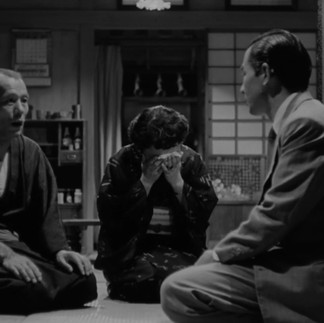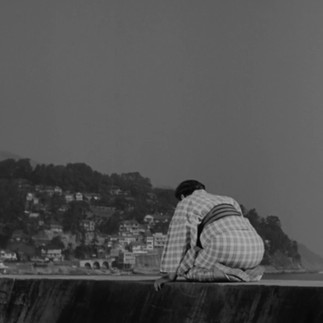No.4 is a stunning film in more ways than one.

Wow, this was an unexpectedly beautiful film. After slogging through Jeanne Dielman, I had somewhat lost faith in this list of the world’s greatest films, but Tokyo Story was delightful and had so much to learn from it. This was also the first Yasujirō Ozu film I’d ever watched and, I think, my first Japanese film (that wasn’t animated).
A few scenes stuck out to me in this story of parents visiting their children in Tokyo. The first of these scenes is where the Shūkichi Hirayama visits an old work friend, and the two discuss their children. I suppose I hadn’t thought about the parents of Japanese soldiers who went to fight in World War II, and this scene, with its beautiful framing (beautiful framing that exists in every scene of this movie) and interesting dialogue, proved to me that truthful subjects can make for the most simple yet powerful moments in cinema. Stay truthful; that is a lesson.
Another lesson, and one that I’ve already mentioned, is that the framing for your movie does not have to be simple, even though your story is. As both parents navigate the reality that their grown-up children are not so interested in them anymore, the audience is met with beautiful shot after beautiful shot. I’m not a great film critic or analyser, but I know that the cinematography and shot choices made me feel so much more as a result.
For someone starting out as a filmmaker, I’d now recommend that they watch Tokyo Story for not only how to craft an engaging yet straightforward narrative but also how to shoot dialogue scenes. You have a wide shot and close-ups, but how can you make them more powerful and interesting? Look at the scene where the characters are mourning over an unexpected death and see how Ozu places them all equally in the frame and says so much with a seemingly static image. There are shades of deep focus in Citizen Kane in this film, and every frame looks like a painting. I’ll include some shots in this post, I’m sure.
I’ll be returning to this film again for sure, and I’m so glad I watched it. I have so far to go to become a great filmmaker, but if I keep watching these films and drawing out what I learn, I will give myself the best shot at success. Of course, I've got to start taking some goddamn action. One thing is for sure: nothing will ever get as bad as your neighbour telling you after your wife has died, "You're going to be lonely", with a smile on their face. Maybe that's something normal in Japanese culture...













Comments